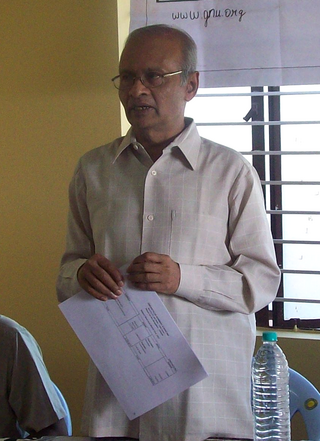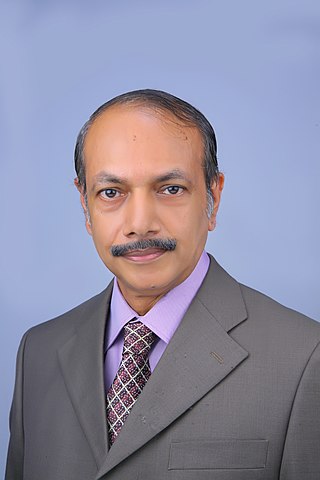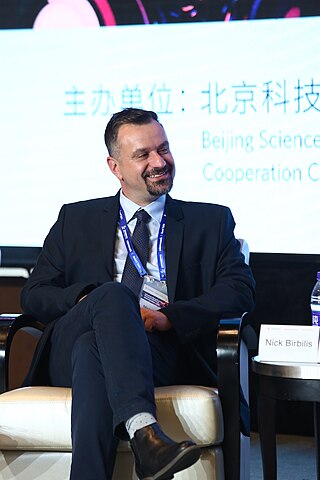
Leon Sterling is an Australian academic.

Leon Sterling is an Australian academic.
After completing a PhD at the Australian National University, Sterling worked for 15 years at universities in the UK, Israel and the United States. He returned to Australia as Professor of Computer Science at the University of Melbourne in 1995. He served as Head of the Department of Computer Science and Engineering for 6 years. After stepping down as Head, he took up an industry-sponsored chair, becoming the Adacel Professor of Software Innovation and Engineering. In 2010, he moved to Swinburne where he served as Dean of the Faculty of Information and Communication Technologies for four years and Pro Vice-Chancellor (Digital Frontiers) for two years. He returned to the University of Melbourne in 2019 where he is a part-time Professor of Software Engineering.
Sterling has been a prominent figure in IT in Australia, serving as Head of the Council of Deans of ICT from 2012 to 2014, has been on a number of national committees, and has been a strong advocate for coding in schools through public lectures, blogs, and committee memberships. His current research is in incorporating emotions in technology development, where motivational models are an essential element. [1] [2] Sterling is the co-author, along with Ehud Shapiro, of the computer science textbook The Art of Prolog.

The Swinburne University of Technology is a public research university in Melbourne, Australia. It is the modern descendant of the Eastern Suburbs Technical College established in 1908 that was renamed Swinburne Technical College in 1913 after its co-founders George and Ethel Swinburne. It has three campuses in metropolitan Melbourne in Hawthorn, where its main campus is located, Wantirna and Croydon as well as a campus in the East Malaysian state of Sarawak. It also offers courses online and through its partnered institutions in Australia and overseas.
A Bachelor of Information Technology is an undergraduate academic degree that generally requires three to five years of study. While the degree has a major focus on computers and technology, it differs from a Computer Science degree in that students are also expected to study management and information science, and there are reduced requirements for mathematics.

Randal E. Bryant is an American computer scientist and academic noted for his research on formally verifying digital hardware and software. Bryant has been a faculty member at Carnegie Mellon University since 1984. He served as the Dean of the School of Computer Science (SCS) at Carnegie Mellon from 2004 to 2014. Dr. Bryant retired and became a Founders University Professor Emeritus on June 30, 2020.
Mark Cameron Burry is a New Zealand architect. He is the Foundation Director of Swinburne University of Technology’s Smart Cities Research Institute.
Zenon Jan Pudlowski (Pudłowski) is an engineer and educator. He is currently director of the World Institute for Engineering and Technology Education based in Melbourne, Australia. He is also a visiting professor at Slovak University of Technology in Bratislava, Bratislava, Slovakia.

K. Chidananda Gowda is an Indian academic who served as the Vice-Chancellor of the Kuvempu University, which is located in the state of Karnataka, India. He is also the son-in-law of the Kannada Poet, Kuvempu, after whom the Kuvempu University is named. He has published many papers, mainly in the field of pattern recognition.

S. Shankar Sastry is the founding chancellor of the Plaksha University, Mohali and a former Dean of Engineering at University of California, Berkeley.

Min Gu is a Chinese-Australian physicist who currently serves as the Executive Chancellor and Professor at the University of Shanghai for Science and Technology. Previously he was Distinguished Professor and Associate Deputy Vice-Chancellor for Research Innovation & Entrepreneurship at RMIT University.
Sung-Mo "Steve" Kang is an American electrical engineering scientist, professor, writer, inventor, entrepreneur and 15th president of KAIST. Kang was appointed as the second chancellor of the University of California, Merced in 2007. He was the first department head of foreign origin at the electrical and computer engineering department at the University of Illinois at Urbana-Champaign and Dean of the Baskin School of Engineering at UC Santa Cruz. Kang teaches and has written extensively in the field of computer-aided design for electronic circuits and systems; he is recognized and respected worldwide for his outstanding research contributions. Kang has led the development of the world’s first 32-bit microprocessor chips as a technical supervisor at AT&T Bell Laboratories and designed satellite-based private communication networks as a member of technical staff. Kang holds 15 U.S. patents and has won numerous awards for his ground breaking achievements in the field of electrical engineering.
Bruce Eisenstein is an engineering educator serving as the Arthur J. Rowland Professor of Electrical and Computer Engineering. He was formerly Interim Dean and Vice Dean of the College of Engineering at Drexel University. He has published nearly 50 papers in the areas of digital signal processing, pattern recognition, deconvolution, along with biomedical engineering. He also served as president of the IEEE in 2000.
Daniel E. Atkins III is the W. K. Kellogg Professor of Community Informatics at University of Michigan.
Angel G. Jordan was a Spanish-born American electronics and computer engineer known as the founder of the Software Engineering Institute (SEI) and co-founder of the Robotics Institute at Carnegie Mellon University (CMU) and served on its faculty for 55 years, since 2003 as Emeritus. He was instrumental in the formation of the School of Computer Science (SCS) at Carnegie Mellon. He has made contributions to technology transfer and institutional development. He served as Dean of Carnegie Mellon College of Engineering and later as the provost of Carnegie Mellon University.
Samarajeewa "Sam" Karunaratne, FIET, FIEE, FIESL is an emeritus professor of engineering and a leading Sri Lankan academic who is the founding chancellor and president of the Sri Lanka Institute of Information Technology and the former vice-chancellor of the University of Moratuwa. He has held a number of other appointments in the field of higher education in Sri Lanka, including senior professor of electrical engineering and dean of the Faculty of Engineering and Architecture, president of the Institution of Engineers, Sri Lanka. Karunaratne is a pioneer in the development of the use of computers in the field of engineering and played an important role in the development of information technology education and industry in Sri Lanka.
Saman Halgamuge was educated in Germany and Sri Lanka and he is currently a Professor of University of Melbourne, Australia. He is an elected Fellow of Institute of Electrical and Electronics Engineers, USA, Institute of Engineering Technology (IET) UK and National Academy of Sciences Sri Lanka (NASSL). He is a highly cited expert in his field and listed as one of the top 2% cited experts for AI and Image Processing in the Stanford University Database published since 2020. His most-cited paper being Self-organizing hierarchical particle swarm optimizer with time-varying acceleration coefficients, with over 4000 citations, according to GoogleScholar. He is a Distinguished Speaker/Lecturer on Computational Intelligence appointed by IEEE. He has supervised 45 PhD scholars to completion and delivered over 60 keynotes at International and national conferences.

K. Poulose Jacob, Professor of Computer Science at Cochin University of Science and Technology (CUSAT) since 1994, was Vice Chancellor and Pro Vice Chancellor of Cochin University of Science and Technology - 2013 to 2017.

Nick Birbilis is an Australian engineer and academic. He is presently the Executive Dean of the Faculty of Science, Engineering, and Built Environment, at Deakin University. Birbilis was previously the Dean, and Deputy Dean of the College of Engineering and Computer Science at the Australian National University. He is of Greek-Australian background. Birbilis works in the field of materials science and engineering, having made contributions in the area of materials design, materials durability and materials characterisation. He is a Fellow of the Electrochemical Society (US), a Fellow of NACE (US), a fellow of Engineers Australia, a Fellow of the International Society of Electrochemistry, and a Fellow of ASM International (US).

Ian Robert Young AO is an Australian academic. He is the Kernot Professor of Engineering at the University of Melbourne. He previously held the senior administrative roles of Vice-Chancellor of Swinburne University of Technology (2003–2011) and Vice-Chancellor of the Australian National University (2011–2016).

Eisa Zarepour is an Iranian conservative politician who has been served as Minister of Information and Communications Technology from 2021 to 2024 in the government of President Ebrahim Raisi.

Rasool Jalili, also known as Rasoul Jalili, or R. Jalili, is an Iranian academic, serving as associate professor at the Faculty of Computer Engineering of Sharif University of Technology. He is a member of the Supreme Council of Cyberspace and visiting professor at the Institute for Research in Fundamental Sciences since 2004.
Bronwyn Fox is a professor of materials science and the deputy vice chancellor research and enterprise at the University of New South Wales. She has formerly served as the chief scientist at CSIRO. Her research considers carbon fibre and composite materials. She was awarded the 2020 Royal Society of Victoria Medal for Excellence in Scientific Research.